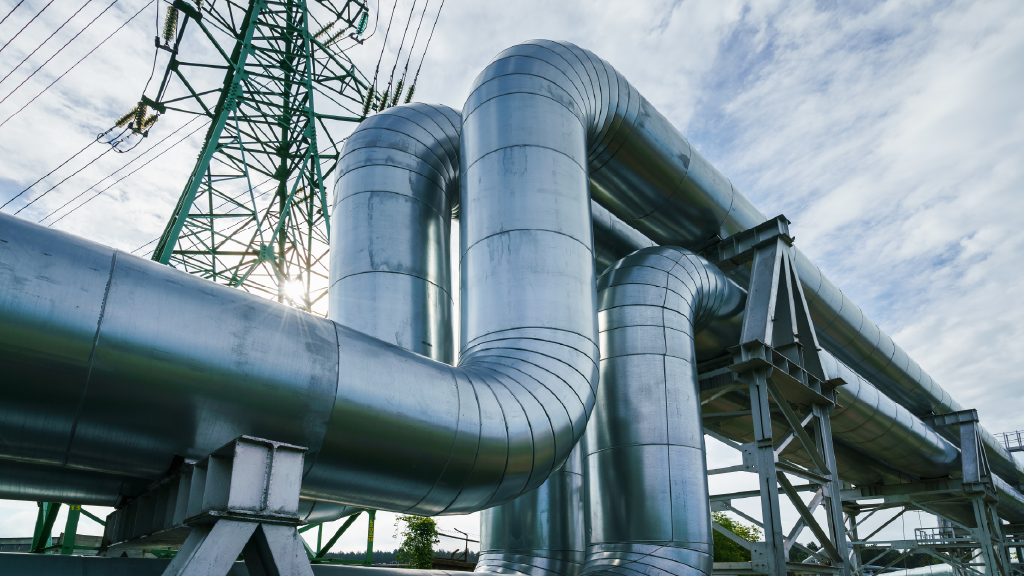CBP Implements UFLPA: The Newest Law Targeting Supply Chain Washing and ESG Violations
On Monday, the United States’ Uyghur Forced Labor Prevention Act (UFLPA) goes into effect. Focused on a controversial region in northwest China, the landmark law creates a presumption that any products “manufactured wholly or in part” in Xinjiang are made with forced labor. It bans all imports from the territory unless a company can prove otherwise.
The guidance sets out the US Customers and Border Protection (CBP) agenda of enforcement and prioritizes investment in supply chain visibility technology and “digital traceability.” It also explicitly bans US companies from importing any products from a list of 20 newly named Chinese companies (many of which are based in Xinjiang), unless the importer proves the goods were not made with forced labor. The list of restricted companies is expected to grow as further labor violations are uncovered, and as named companies adopt aliases to evade detection. Interos is adding these restricted entities to our platform to help customers ensure they’re not in violation.
The law is the latest and boldest attempt to combat an increasingly common practice known as supply chain washing – the concealment of critical information about how products and services are sourced and sold.
While bad actors are certainly responsible for a significant amount of supply chain washing, even companies that believe they are acting in good faith can inadvertently violate sanctions, restrictions, and export controls through hidden unknown relationships in their supplier or customer networks.
UFLPA Compliance: Concerns Over Supply Chain Washing, Supply Chain Visibility, Rise
The implementation of the UFLPA comes at a time when outcry over supply chain deception is high, as much of the world witnesses China’s persecution of the ethnic minority Uyghur population in Xinjiang. The U.S. has described China’s treatment of Uyghurs as genocide.
The UFLPA is part of a series of growing global regulatory actions requiring organizations to act on ESG hazards in their supply chains.
Global supply chains could be significantly impacted by the new law, since Xinjiang is one of the world’s largest producers of cotton as well as polysilicon, which is used to manufacture solar panels.
These growing regulatory dynamics are creating a new urgency to comply with the UFLPA and the many other anti-supply chain washing laws being passed around the world. In their enforcement strategy, CBP specifically cites supply chain washing as a concern, stating that “manufacturing processes and multi-tiered supply chains can further obscure the use of forced labor inputs by incorporating them into legitimate manufacturing processes… Such goods could then be exported from a third country to the United States as a means of obscuring or “laundering” the importation of tainted raw materials from Xinjiang.”
The shifts require organizations take a multi-pronged approach to reduce related supply chain risk.
UFLPA Forces Extra Due Diligence and Required Documentation
- To comply with the law and overcome the rebuttable presumption, importers with exposure to Xinjiang need to implement a heightened due diligence process for supply chain tracing. The UFLPA requires a significant, risk-based supply chain diligence program, including a written code of conduct, an ongoing monitoring and compliance program and plans on how to remediate violations. The evidence required to demonstrate supply-chain tracing is extremely detailed and requires very extensive mapping and documentation.
- A substantial portion of CBP’s guidance focuses on prioritizing “cutting-edge technologies to identify and trace goods made with forced labor, specifically those technologies that support enhanced visibility into trade networks and supply chains that source goods or materials made with forced labor.”
- The Forced Labor Enforcement Task Force (FLETF) has issued detailed guidance on “due diligence, effective supply chain tracing, and supply chain management measures” aimed at avoiding the importation of goods produced with forced labor in Xinjiang. CBP points to the Department of Labor’s Comply Chain as a template for a compliant due diligence program.
- Supply chain leaders should only expect the need for compliance to rise with future guidance, as CBP makes clear in their release of intent to gather “foreign corporate registry data to map the structure of multinational companies and their global corporate networks.”
Anti-Supply Chain Washing Laws are On the Rise Globally
The UFLPA is far from the only sign that global regulators are cracking down on supply chain washing.
The US Securities and Exchange Commission has proposed rules to dramatically increase ESG disclosure requirements, and is taking a much stricter approach towards enforcement, probing large investment firms’ so-called sustainability funds.
Take the example of S&P: In late March S&P settled allegations that it violated U.S. sanctions on Russia when it continued to extend credit to Rosneft, the country’s leading oil and gas company. Or examine recent incidents where components sourced in the UK and Germany were found in Russian warfare machinery being used against the people of Ukraine.
It’s simply not enough to know just who is in your supply chain and what they are doing. You also need to know about where your own products end up.
Supply Chain Washing Can Occur Anywhere
Xinjiang is far from the only area of the world generating concern over supply chain washing: On June 29, the Financial Times published a story highlighting evidence that strongly suggests that Russia may be using concealed/intentionally mislabeled shipments to export stolen grain from Ukraine through already-sanctioned ports in Crimea. Authorities admit confirming whether or not these shipments contain looted grain is difficult, and that ships containing sanctioned goods will often directly transfer cargo to other vessels once at-sea to avoid detection.
Despite these difficulties, accepting shipments of potentially sanctioned goods creates massive risk for large companies. In an interview with the Financial Times, Aline Doussin, a partner at Hogan Lovells, stated that even companies in locations that have not directly placed sanctions on Russia “might find that large multinational companies from those places stop trading with them over concerns that they were indirectly trading with sanctioned entities.”
German Law Shows Trend in Supply Chain Accountability
Germany’s Supply Chain Law takes effect January 1, 2023. That law requires any company doing business in Germany to vet both their direct (Tier 1) and indirect (Tier 2) suppliers for compliance with core human rights and environmental protection measures – or face fines of up to 2% of their global revenue.
In analyzing companies subject to the German law, Interos found approximately 53% have problematic ESG scores using a proprietary scoring method that dynamically assesses an organization’s risk.
Although other European Union member countries are not yet in agreement on the terms of such legislation, it is likely the E.U. will follow with similar anti-supply chain washing laws in the near future.
ESG Supply Chain-related Disruptions Remain Expensive
The Interos 2022 Annual Global Supply Chain Report revealed that ESG-related issues currently cost companies, on average, $35 million per year – and those costs will rise as more anti-supply chain washing laws are enacted.
But many aspects of global supply chains are complex and opaque: most organizations only have visibility of their first- and second-tier suppliers.
Almost one-third (30%) of respondents to Interos’ annual survey said they would only know about an ESG violation in their supply chain if it occurred at their first tier of suppliers – not beyond.
Awareness of ESG issues in a company’s supply chain is no longer optional. Ignorance is not only costly financially and reputationally, but it can also put a company out of compliance with governmental regulations.
The Uyghur Forced Labor Prevention Act is just the beginning
The UFLPA is just one piece of a growing body of global legislation aimed at cracking down on unsound business practices, and the supply chain washing measures used to conceal them.
With new regulations being implemented every day, the already-high cost of noncompliance and poor supply chain visibility is only going to rise – but most organizations still report limited visibility of their suppliers, and a majority have ESG scores indicating noncompliance with some emerging laws.
Organizations will need to invest in capabilities and tools that give them continuous visibility over their direct and indirect suppliers and buyers. CBP’s guidance specifically states that the organization will invest in “enhanced supply-chain tracing technology that can connect imported goods to Xinjiang and other parts of the world at high-risk for forced labor. CBP also plans to invest in advanced search engines that may allow CBP to link known or suspected forced labor violators with their related business structures and transactions.”
As mentioned, Interos is adding the 20 entities named in Monday’s guidance to our automatically monitored entity list. We will continue to update our platform to assist with UFLPA compliance.
When it comes to sustainability and supply chain washing, the tide is clearly turning. Businesses that invest in powerful technology solutions and build robust compliance programs will be able to embrace this change with open arms. Those that ignore this wave of change, do so at their peril.
How Interos Can Help
The video below shows how Interos customers can quickly check their exposure to Xinjiang and the companies sanctioned in the UFLPA with just a few clicks – and how to setup continuous monitoring groups to receive alerts should their risk exposure change.


